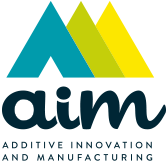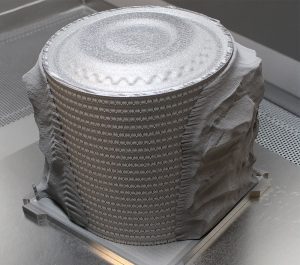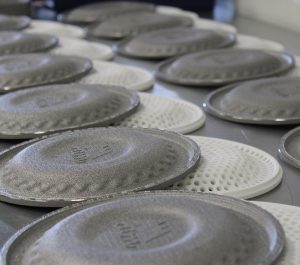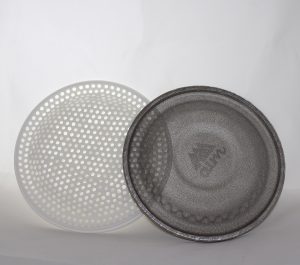MOLDED FIBER
Plastic Waste
Plastic waste – one of the greatest environmental challenges of our time.
A large portion of our plastic waste is single-use plastics, products such as coffee cups, plates, lids, food container etc. that are used for a brief moment in time but stays around in our environment for hundreds of years. We can all agree this is not a sustainable situation.
Fortunately, the number of alternatives to single-use plastics is increasing. Products made of molded natural (cellulose) fibers are maybe the most promising alternative.
Molded Fiber
In molded fiber production lines porous molding tools are submerged into a slurry of water and cellulose fiber. A vacuum is applied to the tools to drain water through the tool and collect fibers on the tool surface. In following forming and pressing steps further shaping, compression and drying take place under heat and pressure to form the final product. The molding tools are crucial for efficient production of products with high and consistent quality.
Conventional tools
Production of conventional tooling require significant manual operations and workmanship skills as they are made manually by attaching a wire mesh to a 3D-shaped metal base. This process is time consuming, expensive and offers no opportunity to optimize the draining properties differently in different areas of the tool. In operation these types of tools often clog and brake which causes frequent and expensive production down time to clean or replace broken tools.

The FreeFlow® tooling concept brings several groundbreaking benefits to modern molded pulp production.
- Optimization of draining properties for reduced cycle times and improved product quality
- Cost-efficient and fast production of tooling
- No clogging issues prevents expensive down-time
- Long life expectancy
- Quick replacement of tooling if needed
- Compatible with conventional metal backings
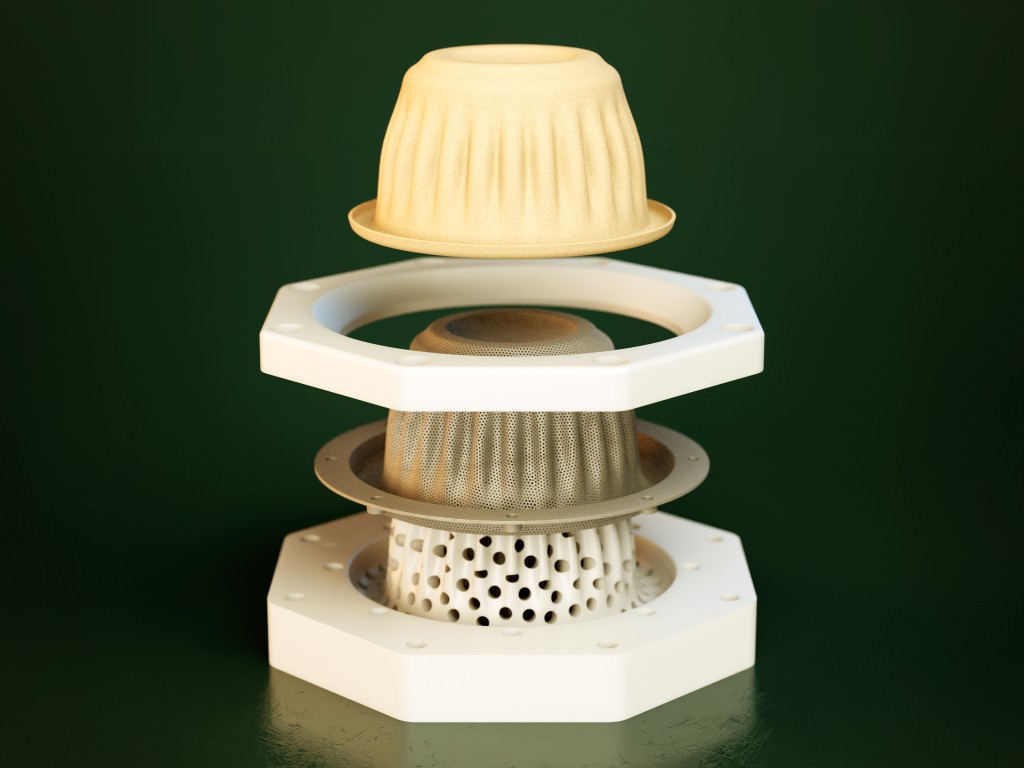
1. FreeFlow® tooling concept
The FreeFlow® tools are made up by a thin titanium skin supported by a nylon backing. The titanium skin is the pulp-facing surface and its perforation determine the draining properties in different areas of the tool. The nylon backing provides strength and stiffness to the tool assembly at low cost and a great degree of geometrical design freedom.

2. Skin – Perforation
The titanium skin allows for optimization of the draining properties differently in different areas of the tool. Full control of size, position and shape on individual hole basis means full control of perforation density. Titanium (Ti6Al4V) is a strong and completely corrosion-free alloy which translates to long life expectancy in harsh industrial production environments.

3. Skin
Distance pins on the back side of the skin sets a proper spacing between skin and backing for efficient distribution of vacuum from the larger holes in the backing to the smaller skin perforation holes.
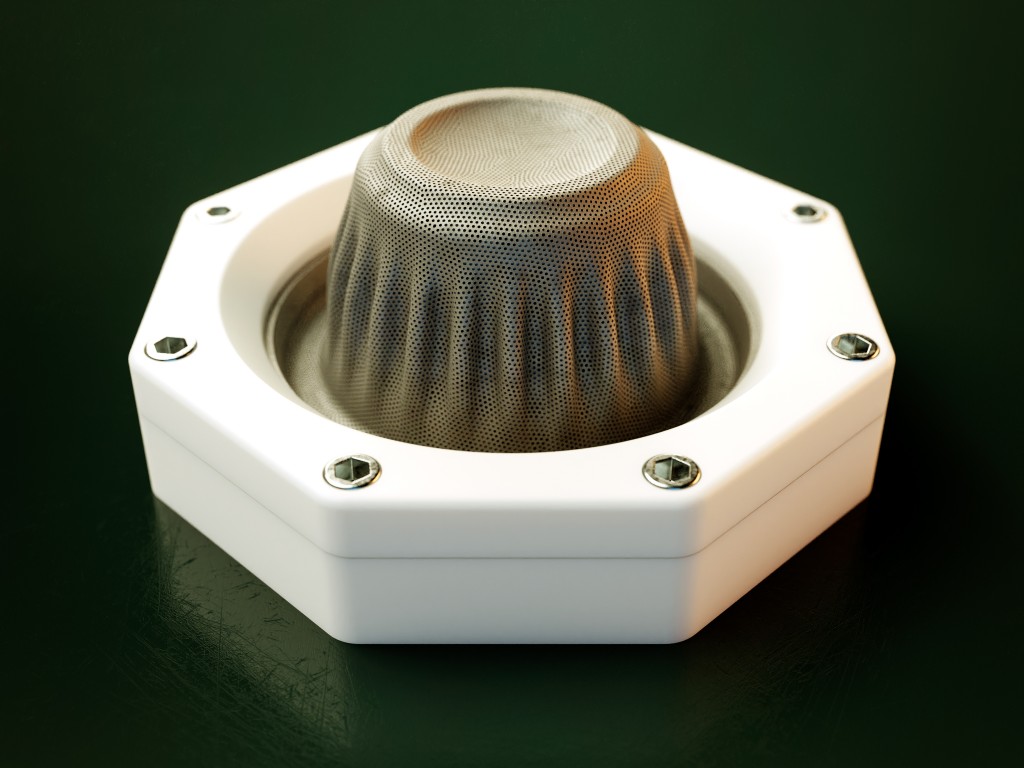
4. Complete tool assembly
The FreeFlow® tool assembly allows you to optimize cycle times and avoid expensive production down-time. In case a skin despite this needs replacement the change-over is very quick. In summary the FreeFlow® tools allows you to shorten cycle times, reduce down time and improve product quality.
